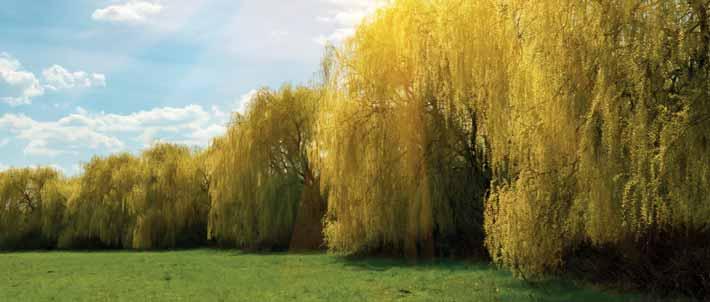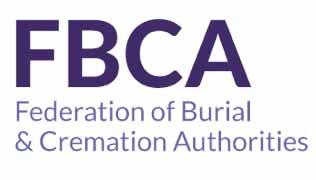
6 minute read
New South Wales Government – Updated Guidance on Funerals to Reflect Infection Rates
Along with many government bodies around the world the New South Wales Government has updated their guidance on funerals to reflect infection rates
Funerals, memorial services and wakes - What has changed for funerals, memorial services and wakes held in NSW?
Advertisement
The maximum number of people allowed at a funeral or memorial service is 100 people. This number must also take into account that there should be no more than one person per 4 square metres of space. Funerals at outdoor public places or place of residences are subject to the same limits
The venue should also be registered as COVID Safe.
These rules also apply to gatherings held immediately after the service.
What if the venue is relatively small?
A funeral or memorial service must not have more than 100 people present and enough space to provide 4 square metres of space per person, whichever is the lesser.
How many people can I invite to a gathering after the funeral?
If you’re planning a gathering after a funeral, the gathering will have a limit of 100 people, and there must be at least 4 square metres of space per person.
Hospitality venues such as pubs, clubs, restaurants and cafés are permitted to accept a booking of up to 100 people for a gathering following a funeral provided there is 4 square metres of space per person. Venues must also be registered as COVID Safe.
For a gathering after a funeral in an outdoor public place or a residential premises the 20 person limit does not apply. The maximum number of people permitted is the lesser of one person per 4 square metres of space, or 100 people.
Separate safety precautions for serving food and drink and performances by choirs, singers and musicians also apply.
How do I know if my place of worship or funeral venue has been cleaned in a COVID-safe manner?
You should discuss the venue’s cleaning policy with the venue operator.
Under the NSW Health checklist, venues should ensure any areas frequented by staff or visitors are cleaned and disinfected at least daily.
Staff should frequently clean and disinfect shared surfaces. This includes door handles, lift buttons, handrails, seating, tables and sinks and staff rooms.
Staff should wear gloves when cleaning and wash hands thoroughly before and after with soap and water.
We want a guestbook at our loved one’s funeral. Is that OK?
If you would like a guest book, consider asking guests to bring their own pen, or have a plan to clean any shared pens as well as the area around the book.
If you would like one less concern at this difficult time, consider alternatives like a digital guestbook that can be filled in from home.
What about a funeral program or booklet?
Talk to the funeral director about alternatives to books, booklets, or other shared objects used during the service.
We also encourage online or electronic alternatives to any cash collections to be taken up in memory of the deceased.
Where can I find the conditions of entry to attend a funeral, memorial service or wake?
Places of worship and other venues should have a mechanism in place to ensure the clear display of the conditions of entry. These conditions should be available to the public on the organisation’s website and social media platforms.
Conditions should also be clearly displayed at all entrance points.
Any additional precautions for our service?
Many precautions are general measures that people have become familiar with, such as physical distancing, frequently washing or sanitising your hands and getting tested if you have any COVID-19 symptom, even a mild one.
Other precautions are more specific to slightly larger gatherings, such as funerals and memorial services.
If the funeral is being held in a church, for example, we suggest erecting protective barriers around frequently touched objects of worship such as shrines, relics or fonts.
Listen to any requests from your funeral venue or place of worship to reduce any crowding at the entrance or exit of the facility. This is important for everyone’s safety. You may be asked to enter or exit at a particular time to reduce crowding.
Find out more about precautions to take for performances by choirs, singers and musicians.
What if I want to pay my respects to a dear, old friend who has passed away but on the day of the funeral, I feel unwell?
This is a very difficult situation. We really urge anyone with even one of the COVID-19 symptoms, however mild, including sore throat, runny nose, cough, fever, muscle or joint pain, a change in taste or smell, or fatigue, to stay away from gatherings and get tested as soon as possible.
Funeral organisers are encouraged to consider live streaming the service or providing a video link for those who cannot attend due to illness or travel restrictions.
My mum has passed away and many of her friends are elderly. Is it OK for them to attend her funeral?
If you know of people who are at high risk of developing COVID-19 complications, such as elderly people or people with existing health conditions affecting their immunity, consider offering an online service. This allows everyone to pay their respects in a COVID safe way.
The risk of significant illness may be different for a 67-year-old person and a 37-year-old. However, no age group is immune from potentially severe outcomes from COVID-19 infection. Personal responsibility and common sense need to be front of mind to keep you, your loved ones and your community safe, especially at this difficult time.
What if someone with a cough or other symptoms attends?
Individuals should take personal responsibility by staying away from funerals, memorial services and wakes, and getting tested if they have even the mildest symptoms, including sore throat, runny nose, cough, fever, muscle or joint pain, a change in taste or smell, or fatigue.
Personal responsibility is key to protecting ourselves, our loved ones and our communities against the spread of COVID-19.
You may want to designate someone to assist with this at the entrance as well as during and after the service or speak to the funeral director ahead of time about assisting with this type of situation.
A family member is flying in from overseas to attend the funeral. Is this permitted?
Australia has strict border measures in place and there are very limited flights available to and from Australia. There are restrictions on people coming from overseas and a quarantine period of at least 14 days at the port of arrival in Australia is mandatory.
Where possible, for the safety of all, make arrangements for a video link to the service or postpone mourning activities until travel arrangements have been confirmed.
How will I know if a mourner or staff at the funeral venue tests positive?
People entering the premises to attend a funeral are required to provide their name and contact details to the occupier of the premises for contact tracing purposes. Records must be kept for at least 4 weeks. Organisers must ensure records are used only for the purposes of tracing COVID-19 infections and are stored confidentially and securely.
If a guest or other person attending the funeral is diagnosed with COVID-19, NSW Health will ask that you provide this record to assist with contact tracing.
In addition, encourage guests to download the COVIDSafe app, which supports contact tracing while protecting personal information under the Commonwealth Privacy Act.








